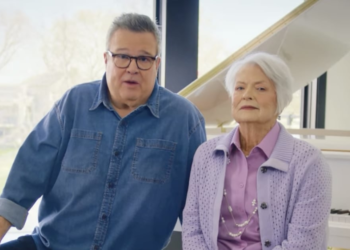This week, Canada’s Liberal Party pulled off an improbable, come-from-way-behind fourth-term win. There will be little time for the party or its leader, Prime Minister Mark Carney, to celebrate. Unlike a decade ago, when Justin Trudeau won in a landslide and told supporters after his big win, “Sunny ways, my friends, sunny ways,” these days can hardly be described the same way.
Mr. Carney’s new term begins with a daunting to-do list. On the economic front, Canadians are expecting quick action to alleviate the cost of living crisis; polling data from the Angus Reid Institute, where I work, shows nine of 10 Canadians are concerned about the prospect of a recession within the next year. President Trump made Canada, along with Mexico, the first casualties in his global trade war, imposing crippling tariffs, before pausing some, while continuously repeating his desire to annex Canada as America’s 51st state. Initially, Canadians thought Mr. Trump was just being Mr. Trump. But his consistency has left the nation feeling betrayed and anxious and angry.
Mr. Carney matched the voter energy in his own victory speech on Monday night. He told Canadians that Mr. Trump was trying to break them “so America can own us,” and reassured them it would “never, ever happen.”
Now the world is watching Canada like some global lab rat, to observe how it will react and respond to what our neighbor to the south throws next. Canada’s imperative today should be to reframe its place in the world beyond America.
Canadians like to see themselves as polite peacekeepers. But there is a worrying gap between how we view our influence globally versus how the rest of the world sees it. In a survey last year, just over half of Canadians said their country was viewed positively in world affairs. While not a direct comparison, by contrast, a global Fulbright Foundation survey conducted around the same time found that less than one-third of respondents said Canada used its influence around the world “mostly for good.”
In 2015, Mr. Trudeau campaigned to bring Canada back into the world after criticism the country had lost its soft power. Two years later, Canadians increasingly backed finding new economic partners when Mr. Trump, in his first term, demanded a renegotiation of the North American Free Trade Agreement that yielded the United States-Mexico-Canada Agreement, which many argue disadvantaged Canada economically.
What went wrong? Some will say “circumstances”; there was a pandemic after all, and soaring inflation. Others will blame a failure of “deliverology,” the ability to take a stated policy through to completion. Some others still might point a finger at Mr. Trudeau’s focus on issues that resonated with his base — gender equity, climate change — and less with the countries they wished to engage. His harshest critics will simply condemn the former prime minister and his cabinet as unserious.
In the past decade, Canada’s bilateral relationships with world powers beyond the United States have worsened, not improved. Many in Canada feel relations with China are irreparable after a geopolitical saga that began with the arrest, at Washington’s request, of top a Chinese Huawei executive in Vancouver in 2018, and culminated in China’s subsequent imprisonment of two Canadian men for more than 1,000 days in apparent retaliation. Current economic relations are no less fraught: Canada has imposed a 100 percent tariff on Chinese-made electric vehicles, along with a 25 percent tariff on steel and aluminum products from China. China, in turn, has imposed a 100 percent tariff on Canadian exports of canola oil, canola meal and peas, and a 25 percent tariff on seafood and pork. Farmers in western Canada are hurting.
The diplomatic relationship between Canada and India is even worse. Last October, Ottawa expelled Delhi’s high commissioner after alleging that India sent assassins to kill a Canadian citizen who was a leader of a Sikh nationalist group. Delhi, which has vehemently denied the accusation but nevertheless views Canada as soft on extremist groups, matched the move and expelled Canada’s top diplomat. Despite — or perhaps, because of — the large Indian diaspora living in Canada, both countries remain locked at a nadir in their diplomatic relationship. The political establishment in Delhi largely blamed Mr. Trudeau; it remains unclear the extent to which Mr. Carney will have the political appetite to smooth things over.
Perhaps the situation looks more promising for Canada across the North Atlantic. Mr. Carney made a point during his initial short stint as prime minister to visit London and Paris — not Washington. (This week, he said he would visit the U.S. capital.) He gave his first international interview to the British Broadcasting Corporation, during which he expressed a desire to finish a long pending free trade agreement between Canada and Britain. Canada successfully put in place a trade agreement with the European Union in 2017.
It’s on international commitments to military spending where Ottawa must make inroads. The Liberal campaign platform promised to increase spending over four years by $18 billion to meet NATO guidelines.
Even though he fell just short of a majority in Parliament, Mr. Carney has public opinion on his side, which should make it easier to make good on his promises. That may change if the domestic economy worsens. Auto manufacturing plants are temporarily closing because of American tariff threats and the related uncertainty. Canada has oil and gas to sell but lacks a coat-to-coast pipeline to more effectively get it to market. At the least, the new prime minister will want to avoid indulging in the kind of rhetorical flourishes that got Mr. Trudeau in trouble. After the latter declared Canada was “back” in 2015, his critics later said he merely dragged Canada backward.
Acting as host to both the Business 7 summit this month and the Group of 7 in June grants Canada a rare and critical opportunity for a do over. It can’t afford to muck it up again. This time, Canada needs to do more than just talk about securing its economic and strategic future beyond America. Mr. Carney will have to step up if he’s to succeed at making the case for Canada in the world.
Shachi Kurl is president of the Angus Reid Institute, Canada’s nonpartisan, nonprofit polling organization.
The Times is committed to publishing a diversity of letters to the editor. We’d like to hear what you think about this or any of our articles. Here are some tips. And here’s our email: [email protected].
Follow the New York Times Opinion section on Facebook, Instagram, TikTok, Bluesky, WhatsApp and Threads.
The post Canada Needs a New Story appeared first on New York Times.




